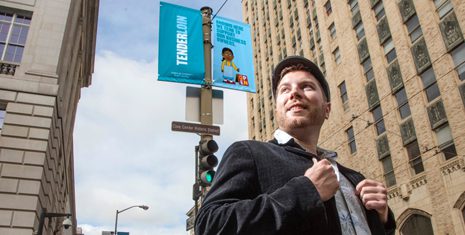
Low-Income Taxpayer Clinic
About the Clinic:
The UC Law SF Low-Income Taxpayer Clinic (“LITC”) is a service of the University of California College of the Law, San Francisco that aims to help qualifying low-income individuals with their tax problems with the IRS, while providing the opportunity for our law students to develop their lawyering skills while work with underserved communities. Under the close direct supervision of UC Law SF faculty, students participating in the LITC act as primary attorneys for their clients, representing their clients before the IRS, U.S. Tax Court, and California state tax agencies.
The Low-Income Taxpayer Clinic is one of the many clinics funded by the Federal Government to provide legal representation to taxpayers without the means to pay an attorney to represent them before the Internal Revenue Service. As part of our mission, we also provide education and outreach to taxpayers who speak English as a second language.
For qualified taxpayers, our service is completely free of charge. We are funded by a grant administered by the IRS, but are otherwise completely independent from the IRS. Your information shared with us is confidential and protected by attorney-client privilege and will not be shared with the IRS without your permission unless required by law.
Clinical Instructor:
The Clinic is taught by Professor Amy Spivey.
Classroom Component:
Class will meet twice per week for a seminar that will focus on learning the relevant areas of tax law and necessary lawyering skills. A single-day boot camp will be held early in the semester. Tax law topics include tax credits, audits, appeals, taxpayer rights in tax collections with the IRS and FTB, relief from joint and several liability, and federal tax litigation. Students will practice lawyering skills through simulation and role-play exercises and learn the importance of self-reflection and receiving constructive feedback in developing their professional identities. Several classes will be devoted to case rounds, where student pairs lead a discussion to reflect on and brainstorm their cases with the class. Throughout the semester, students will examine how the tax system impacts low-income and ESL taxpayers and the role of lawyers in providing services to underserved communities in order to ensure the fairness and integrity of our tax system.
Fieldwork Component:
Students will work an average of 16 hours per week representing clients in a wide variety of tax controversy cases. Students will work in pairs, handling all aspects of client representation, with guidance and support from Professor Spivey. Typical fieldwork includes client interviewing and counseling, conducting tax research, preparing legal forms and documents, and interacting directly with the tax agencies to help resolve our clients’ tax controversies. Students also have the opportunity to attend Tax Court Calendar Calls in San Francisco to view court proceedings, help provide advice to unrepresented taxpayers, and observe negotiations between pro bono attorneys and IRS Counsel.
Prerequisite:
Federal Income Taxation
Open to: 3rd, 4th, 5th or 6th semester JD students, LLM students and MSL students. It is not possible to concurrently enroll in the same semester in both this course and another live-client clinic, legal or judicial externship, or the Startup Legal Garage.
7 units: 3-unit non-GPA class and 4-unit fieldwork must be taken concurrently. Students receive a letter grade for the class (based on all aspects of their work in the seminar and fieldwork), as well as credit/no-credit for the fieldwork units. Fieldwork units count against the maximum of 20 non-classroom units that a JD student can earn.
To Apply: Apply using the Common Clinic Application on Canvas.
Please send any questions to Professor Spivey at spiveyamy@uclawsf.edu.